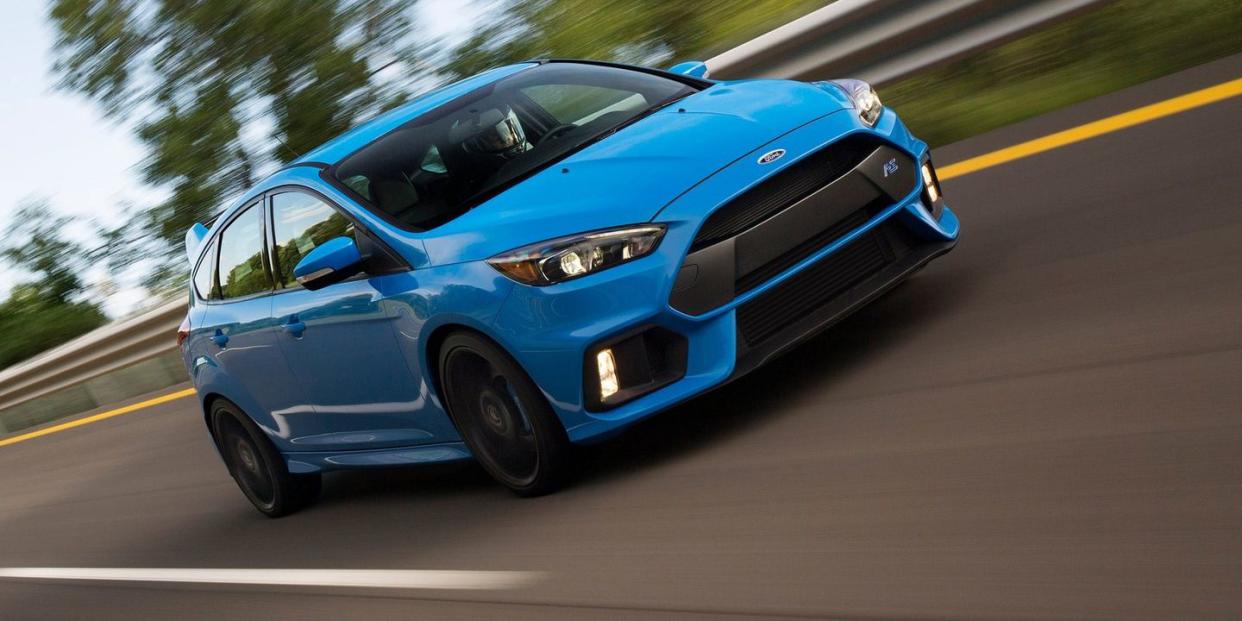Ford Will Stop Selling Fiesta, Focus In US by 2022

If you live in North America, say goodbye to the lovely Fiesta ST and Focus RS (pictured above). In its 2018 quarter-one earnings call today, Ford announced that it's going all in on SUVs and trucks here, and it plans to kill most of its car lineup by 2022. At that point, the only cars it'll sell in North America are the Mustang, and the not-yet-revealed Focus Active crossover-esque hatch.
That means the Fiesta, Focus, Fusion, and Taurus will all disappear in favor of the SUVs and trucks customers demand, which are more profitable than Ford's cars anyway. Ford says that by 2020, 90 percent of its offerings will be "trucks, utilities, and commercial vehicles." The Dearborn company also says it's exploring potential new models that "combine the best attributes of cars and utilities, such as higher ride height, space and versatility."

In a statement, Ford CEO Jim Hackett explained the move away from sedans and hatchbacks
"We are committed to taking the appropriate actions to drive profitable growth and maximize the returns of our business over the long term," Hackett said. "Where we can raise the returns of underperforming parts of our business by making them more fit, we will. If appropriate returns are not on the horizon, we will shift that capital to where we can play and win."
In layman's terms, Hackett is saying that Ford isn't really making money off cars like the Fiesta, Focus and Fusion, so it's shifting its focus to trucks and SUVs.
All of this is part of a plan to cut $5 billion in planned spending from 2019 to 2022. It makes sense, but enthusiasts who've grown to love Ford's hot-hatches like the Fiesta and Focus ST, plus the Focus RS won't like this news. Oh well, at least we're getting the Edge ST and upcoming Explorer ST here. And we'd throw a fit if the Mustang died.
Ford hasn't announced a specific timeline for when each car will disappear from the North American market, so we reached out to the company for clarification.
You Might Also Like

